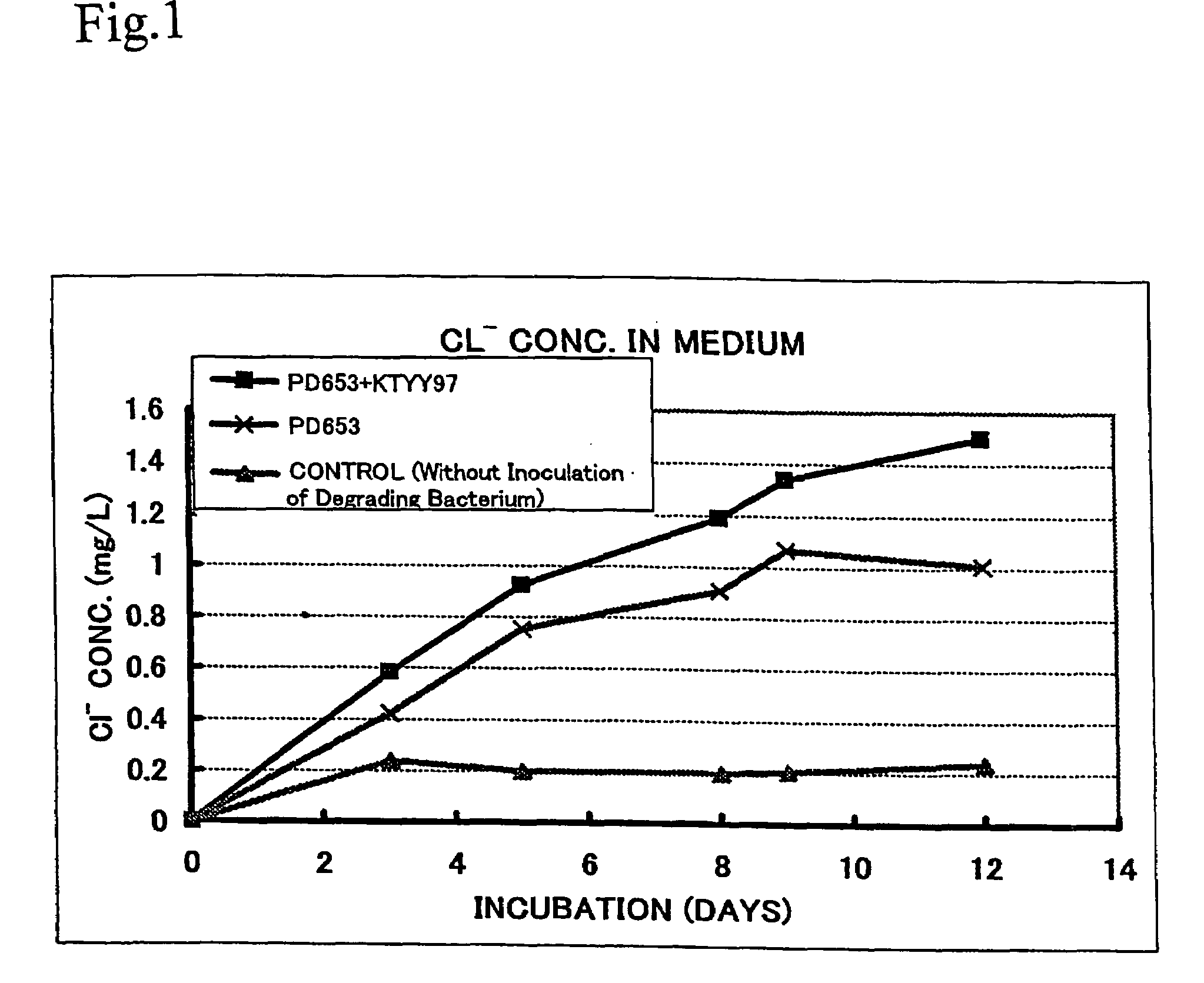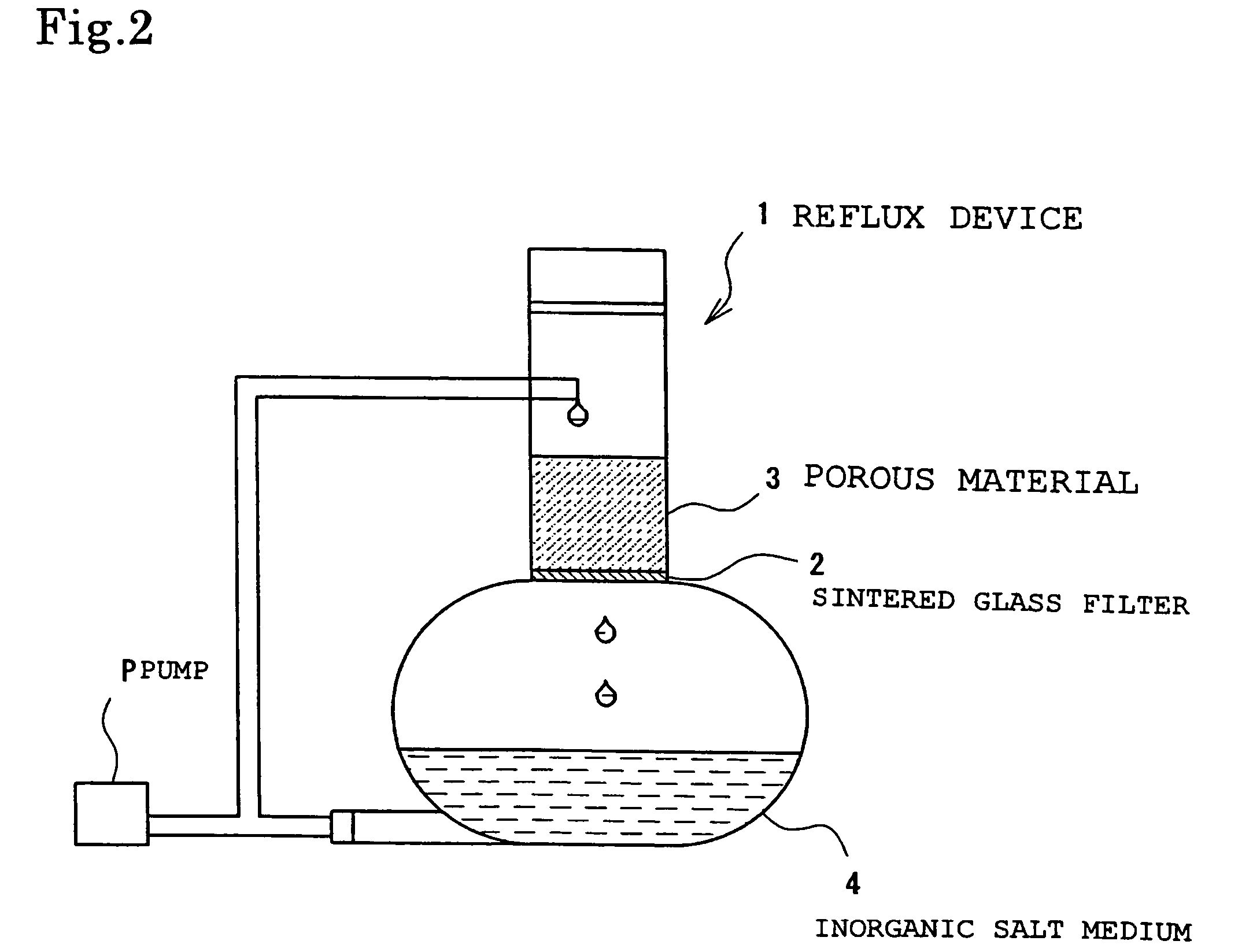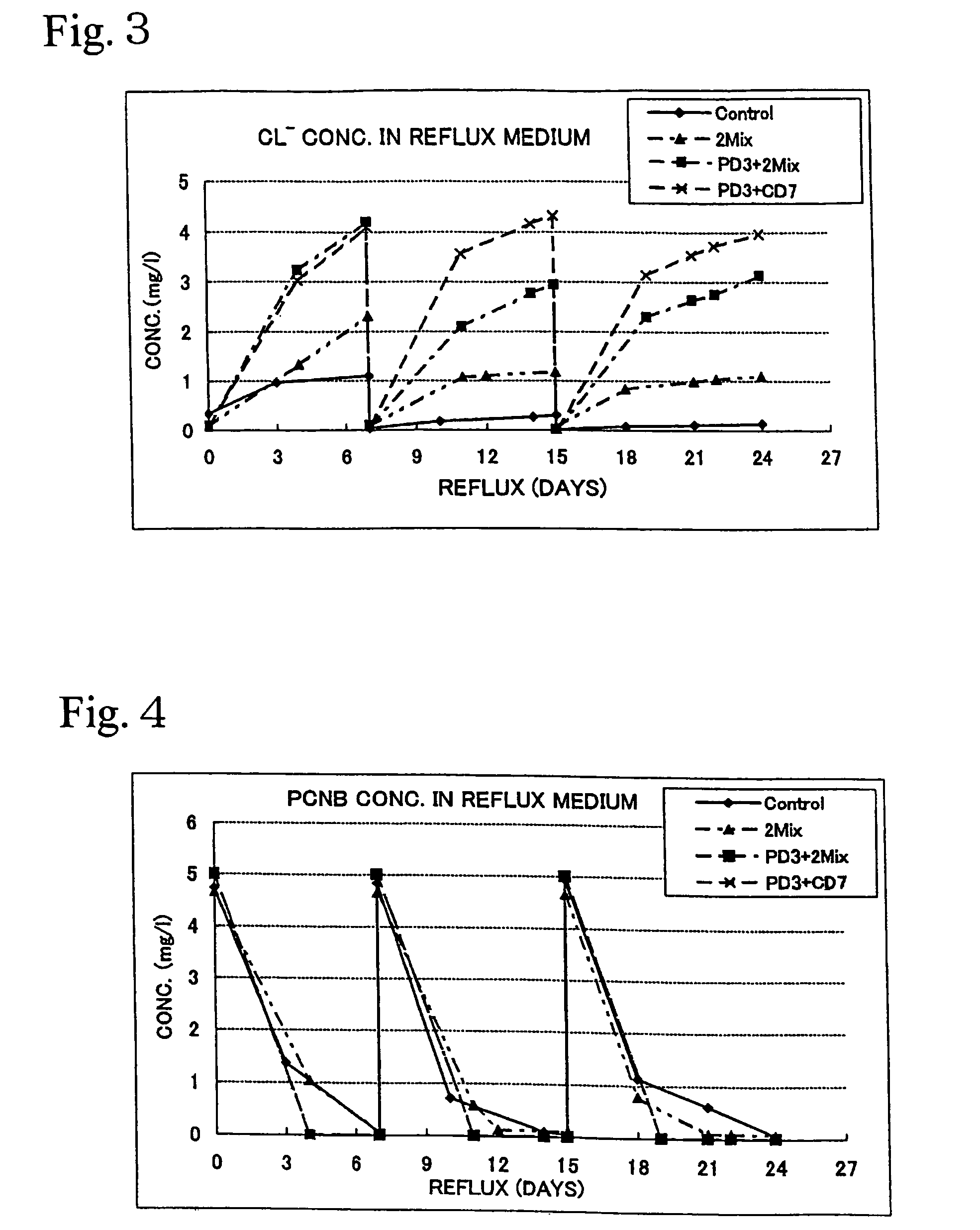Nocardioides FERM BP-10405 capable of degrading organochlorine pesticide PCNB
a technology of organochlorine pesticide and nocardioides ferm, which is applied in the direction of enzymology, bacteria based processes, on/in inorganic carriers, etc., can solve the problems of difficult discovery of degrading bacteria that effectively decompose organic contaminants, contaminated environment cannot be effectively removed, and problems have risen
- Summary
- Abstract
- Description
- Claims
- Application Information
AI Technical Summary
Benefits of technology
Problems solved by technology
Method used
Image
Examples
examples
[0098]Hereinafter, the present invention will be described in further detail with respect to the following examples. However, the present invention is not limited to the examples.
[0099]1. Method of Manufacturing a Support for Holding a Complexed Enrichment of Degrading Bacteria:
[0100]Support for holding a complex enrichment of degrading bacteria, on which PD3 and CD7 are held: A reflux device 1 shown in FIG. 2 was filled with about 7.5 g of a carbonized ligneous material A (5-mm to 10-mm chips of carbonized ligneous material obtained by subjecting broad leaved tree to general baking at 500° C., having a pH value of 8, a specific surface of 100 m2 / g, and the volumes of pores having diameters of 5 μm to 20 μm account for 10% or more of the total pore volume, as described in Japanese Patent No. 2904432) 3 to serve as a micro-habitat and then washed with ultrapure water, followed by subjecting to a sterilization process. The porous material 3 was added with 0.5 ml of a 3,000-ppm PCNB ac...
PUM
| Property | Measurement | Unit |
|---|---|---|
| specific surface area | aaaaa | aaaaa |
| sizes | aaaaa | aaaaa |
| sizes | aaaaa | aaaaa |
Abstract
Description
Claims
Application Information
 Login to View More
Login to View More - R&D
- Intellectual Property
- Life Sciences
- Materials
- Tech Scout
- Unparalleled Data Quality
- Higher Quality Content
- 60% Fewer Hallucinations
Browse by: Latest US Patents, China's latest patents, Technical Efficacy Thesaurus, Application Domain, Technology Topic, Popular Technical Reports.
© 2025 PatSnap. All rights reserved.Legal|Privacy policy|Modern Slavery Act Transparency Statement|Sitemap|About US| Contact US: help@patsnap.com



